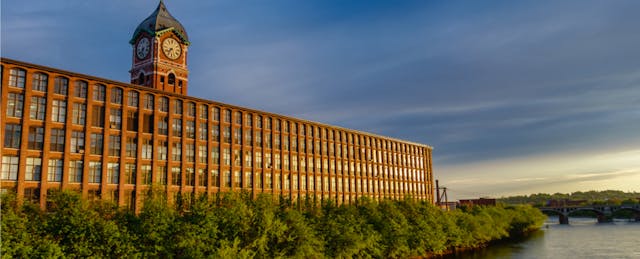When Christine Ortiz announced nearly two years ago that she was taking leave from her job as a dean at MIT to build a new kind of research university, the idea went viral, even though she offered few details. The effort didn’t even have a name yet.
Now Ortiz has emerged from a “stealth” period to give an update on her project. Though she is filling in a few more blanks, the pitch remains more of a sweeping vision than a detailed proposal. And the university is still years away from being fully operational. It does, at least, have a name: Station1.
The basic concept is to create a new non-profit research university that will offer no lectures (focusing instead on student projects as a primary mode of instruction), host no traditional academic departments (instead embracing a fusion of various sciences and the humanities), and charge much less than a traditional research university (to attract a more-diverse student body).
Deciding on a name posed a particularly tough challenge, says Ortiz. “I didn’t want something that was ‘university’ or ‘institute,’” she says, noting that she wanted to show it was not an ordinary university. “And we didn’t want to sound like a startup company because we’re a nonprofit,” she adds. She also decided to avoid putting the word “new” in the title because “if you say ‘new,’ then 10 years from now it will be old.”
Ortiz says her goal is to eventually build a network of campuses around the world, but the initial location will be in Lawrence, Massachusetts, a former mill town about an hour’s drive from Boston. Though officials for the new university are still scouting specific locations, Ortiz says she is drawn to the “large numbers of huge beautiful brick mill buildings, with lots of open spaces and floor-to-ceiling windows, on the Merrimack River.”
There will be no traditional classrooms, but the large spaces will be subdivided into distinct areas, some designed for research, others for group work, and others for individual study, says Ortiz.
“The core is team-based inquiry, where students have access to prototyping lab spaces 24/7,” says Ortiz. “We want to take the best things from maker spaces to real research spaces and high-end design spaces.” She expects the building to open with some interior spaces still only partially finished, so that the students “actually complete the design of the space and facilitate the culture of the space.”
Most of the instruction will be blended, with some activities online and the rest in person. She says that her team has decided not to run online-only courses, stressing that face-to-face work will be key since so much of the learning will be project based.
The project’s website says that in four years, officials plan to begin the process of applying for accreditation as a university. For now, she has treated the creation of the university as a research project, and she says she’s “traveled around the world three times and met with over 300 educational institutions” to see innovative models in person and to develop a sustainable financial model for her effort.
Summer Fellows
Station1 will take one small step into reality this summer, though. Ortiz says it will offer its first summer fellowship program, which involve a mix of project work and internship experience. Applications are now open for the program, designed for students who are currently undergraduates and who have “a genuine interest in science and technology applied to societal impact,” according to the fellowship application.
The fellowship will be free to the students; in fact, they will receive a stipend and paid housing and travel costs. Ortiz says that she has obtained enough funding from foundations and individual donors to support the first group of fellows, though she declined to say how many students will be accepted. (She declined to say how much funding she has received.)
She says she is encouraging students from diverse backgrounds to apply, as well as those who have not had the chance to do project-based learning or internships. “If a student doesn’t have an internship or a project or research experience,” she says, “they’re pretty much noncompetitive in the job market.”
When asked whether the fellows were essentially guinea pigs for the broader university program still being designed, Ortiz pushed back against that characterization. “I’ve done so many project-based classes at MIT,” she says. And she says she expects the summer programs to continue even after the full university is up and running.
The summer program will not grant any sort of credential, but Ortiz says she expects that the projects students complete will be something they can show potential employers as proof of the skills they learned.
She says that one of her goals is to encourage others to start new universities, and for traditional colleges to try radical new approaches. “Station 1 by itself is not the answer. But we would love to be part of a community of likeminded institutions and new institutions,” she says. It is one of a handful of efforts already engaged in that mission.


